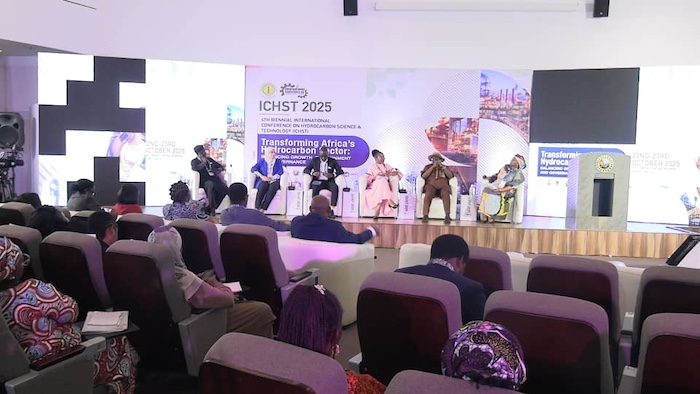The 4th Biennial International Conference on Hydrocarbon Science and Technology (ICHST) has ended in Abuja, with participants calling for an accelerated development of Nigeria’s huge gas resources.
The two-day conference was organised by the Petroleum Training Institute (PTI) in partnership with the Ministry of Petroleum Resources, Petroleum Technology Development Fund (PTDF), Nigerian Upstream Petroleum Regulatory Commission (NUPRC), Nigerian Midstream and Downstream Petroleum Regulatory Authority (NMDPRA), NNPC Academy, among others.
In a communiqué read at the weekend by the Director of Research and Development at the PTI, Dr Tina Isichei, the participants, including heads of government agencies, captains of industry, professionals, academia, noted that if fully deployed, Nigeria’s gas reserves will drive national development.
This year’s theme which was: “Transforming Africa’s Hydrocarbon Sector: Balancing Growth, Environment, and Governance,” examined strategies on how to govern Nigeria’s oil and gas resources in ways that build trust, attract sustainable investment, uplift the people, safeguard the environment, and secure Africa’s rightful place in the global shift toward sustainable energy.
At the end of the conference, the attendees resolved that the future of the African oil and gas industry depends on deepening strategic collaborations between African nations, noting that all agencies in the ministry of petroleum resources must collaborate to generate solutions to Nigeria’s problems.
“The government should establish centres of excellence in PTI and universities to address contemporary human resource requirements in the oil and gas industry. The government should ensure and support collaboration between industry and academia to build a talented and knowledgeable workforce to meet the current energy transition needs.
“Transparency is the currency of trust to propel the Africa hydrocarbon sector. To attain Nigeria’s aspirations for hydrocarbon utilisation, there must be more collaborative efforts and partnerships between stakeholders, driven by enabling policies and a favourable business environment.
“Educational institutions such as PTI have a key role to play as the energy landscape is constantly evolving. Thus, the need for her to evolve by engaging in applied research and establishing on-demand programs on future energies to prepare the nation for technological and economic transformation,” the communiqué stated.
Besides, it emphasised that the Public Trust & Anti-corruption Index and public perceptions are tools that can drive ethical governance and leadership in the hydrocarbon sector, stressing that domestic or local participation will boost the local content intervention and skill development.
Besides, they agreed that Nigeria should leverage the impact of divestment in the oil and gas industry to make a bold statement that the country has come of age and acquired the technical, managerial, and financial capabilities to develop the oil and gas industry.
In the same vein, attendees pointed out that there was a need to develop gas investment solutions for the short, medium, and long term, as energy is the biggest catalyst for economic and national development.
“Nigeria has been blessed with natural gas resources, this is enough to support developments by leveraging digitalisation, innovation, and technology across the board. It is projected that by the year 2050, Nigeria will be the 3rd most populous country on earth, necessitating an urgent need to think outside the box and proffer sustainable solutions to the country’s energy crisis.
“Considering the government policy of 2020-2030 as the Decade of Gas, the government should speed up the Compressed Natural Gas (CNG) investment and ensure all Liquefied Petroleum Gas (LPG) importers set up processing plants in Nigeria so that the commodity will be readily available and at an affordable price.
“Nigeria should vigorously embark on the energy transition without compromising its already developed energy resources and the developmental needs of the country. Nigeria is blessed with both human and mineral resources that can be harnessed for national development. The federal government should take full advantage of the abundant gas reserves to diversify the Nigerian economy into agriculture and Information and Communication Technology (ICT),” they added.
They also called for the liberalisation of the gas sector, formulation of guiding policies and regulations that must be obeyed, and allow the private sector to drive the economy, stressing that there was the need to leverage mentorship platforms and opportunities for the development of young people.
Emmanuel Addeh

